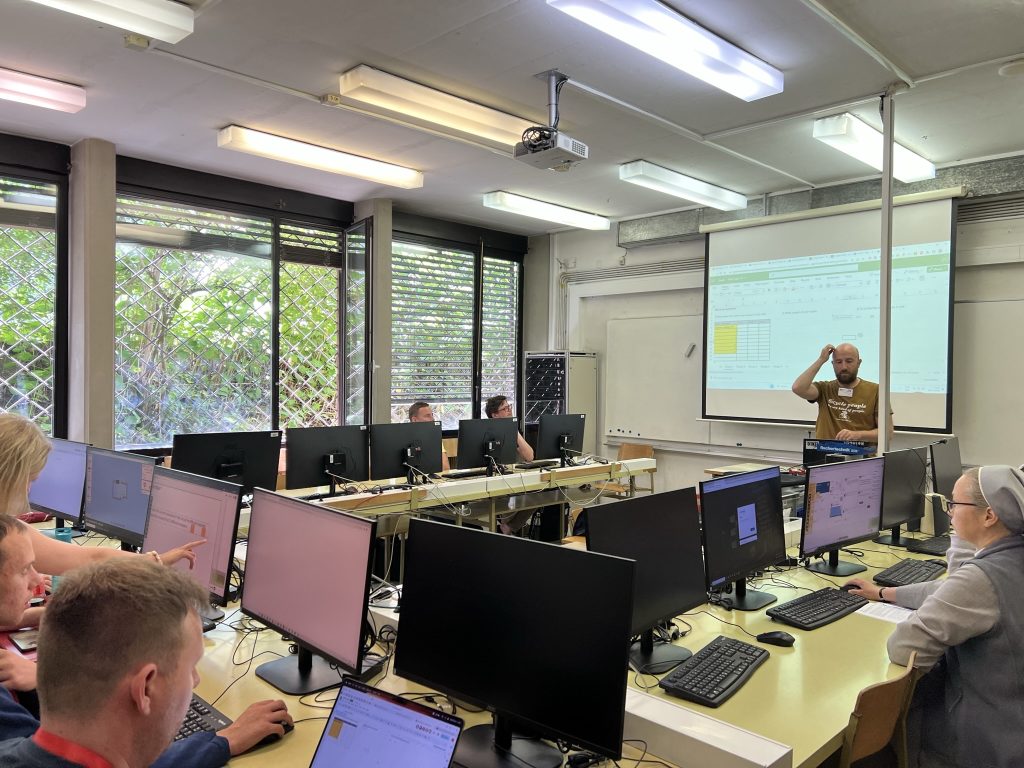In the project, we aimed to educate primary and secondary school teachers of science subjects in scientific content implementation in remote conditions. In each of the four participating countries (Slovenia, Ireland, Belgium, and Poland), we formed learning communities of active teachers (Professional Learning Communities of Teachers – PLCT), which regularly met online.
The meetings were co-created in collaboration with partner organizations and were led by individual partner organizations. Approximately 30 teachers who directly taught at least a few classes with about 20 students at least, and were therefore in contacts with 50 to 100 students, participated in the meetings. This means that more than 1000 students indirectly benefited from the project. Partners developed learning units to test Inquiry-Based Learning (IBL) in remote conditions and they have practiced also the practitioner inquiry (PI-Practitioner Inquiry) and active work in PLCTs (Professional Learning Communities of Teachers). Workshops aimed to enhance teachers’ autonomy in remote learning through inquiry, promote the implementation of remote inquiry-based learning, and adapt existing learning units for remote work. They also provided support for teachers to research their own practice in a given situation and encouraged them to use the gathered data to their advantage. New learning units were included in the e-collection.
Meanwhile, partner organizations held shorter video conference meetings. These meetings focused on planning and coordinating activities with teachers and conducting in-depth analyses of the effectiveness of individual activities in each participating country. Additionally, partners discussed new ideas in real-time and monitored the project’s development.
From the learning units and activities tested in PLCTs, we designed two teacher professional development courses: an introductory hybrid course and an advanced fully remote course on Inquiry based learning. Both courses are detailed in the “Intellectual Outputs” tab.
At the end of the project, a two-day final conference was organized, taking place in person due to relaxed COVID conditions. The conference featured project results through workshops, partner presentations, and panels with teachers reflecting the project’s overall concept. More details about the conference are provided in a separate tab dedicated to the conference.

Picture 2.1: Workshop on Teaching Electricity and Magnetism Remotely
RISE is project No. 2020-1-SI01-KA226-SCH-093576, funded under the ERASMUS+ Program KA2 and signed by the National Agency CMEPIUS Slovenia.
“The implementation of this project was funded by the European Commission. The content of publications (communications) is the sole responsibility of the authors and in no way represents the views of the European Commission.”